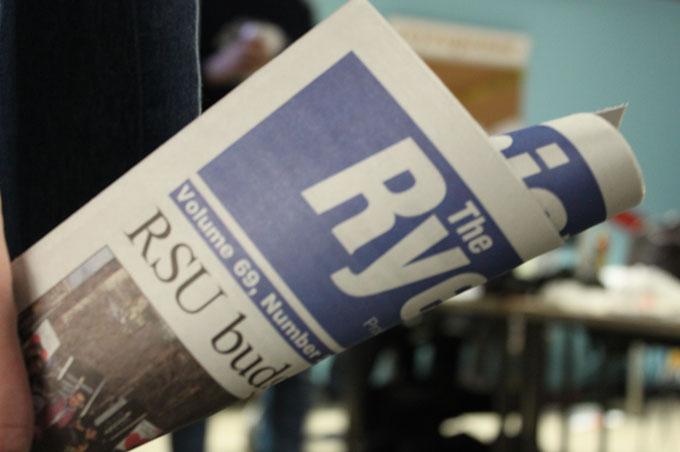By Salmaan Farooqui
The RSU held a reverse racism workshop Tuesday afternoon in response to controversy over the Ryersonian’s story earlier this month regarding two white students being asked to leave a racialized student’s collective meeting.
The Ryersonian article, which made headlines across Canada and even in the United States, caused many to complain that the white students being barred from the meeting was an example of reverse racism.
Despite the controversy and “severe backlash” that Vajdaan Tanveer, a Racialized Students Collective co-ordinator, said the RSU faced, there were very few white people in attendance, with the audience mostly consisting of people of colour.
The workshop, which hoped to discuss the idea of reverse racism with people who felt that they had been subjected to it, made a point of saying that reverse racism is actually a false concept that does not exist. Instead, event facilitator Kimalee Phillip maintained that white people can be subject to discrimination and prejudice, but not racism.
The Racialized Student’s collective explained that this is because racism is a combination of power and prejudice, and in current society, the power is more in the hands of white people.
When asked to describe what reverse racism is, Tanveer was hesitant to even validate the term.
“The problem is by defining it, we’re validating it as a real thing,” said Tanveer. “It’s perceived to be the prejudice against white people because they are white.
“To be clear, we’re not saying that white people aren’t subject to prejudice or discrimination, we are saying is that the term ‘racism’ should not be attached to the prejudice they experience,” he continued.
Phillip found the lack of white attendance especially disappointing.
“I think what the racialized students collective gleaned from that incident is that they need to have this conversation, and the students claimed they wanted to support and help build,” Phillip said. “So it was disappointing to see that a lot of white students that felt like they were rejected from the (racialized students meeting) space were not even here.”
She explained that the only white people in the audience were already racialized student allies, or people interested in becoming allies, when the event was hoping to reach out and educate both white and people of race on the issue.
“The non-presence implies that there was never an intention to actually build.”










morningCoffee
If the object of this meeting was to justify barring people along racial lines by regurgitating political theory about white privilege, then this meeting was a pronouncement not a discussion. What I want to see is a collective that welcomes criticism. self-reflection and change. What did this collective do wrong in this incident? Is it ethical to exclude people from public events merely because they are deemed “white”? How would this collective enforce barring people along racial lines in a public event? Would it call security or police? What does it do when it rejects people who may not be racialized but are marginalized? What are the long-term social consequences of barring people along racial lines? Those are the real questions.